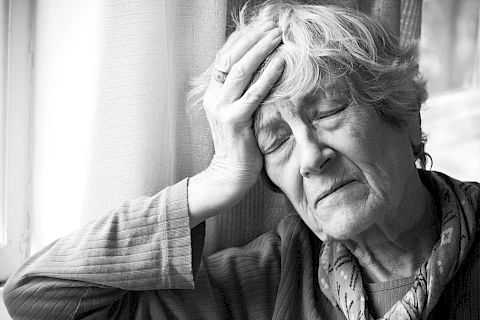
Seasonal affective disorder, commonly known as SAD, affects many people during specific times of the year. For seniors, understanding and managing SAD is critical, as this disorder can significantly impact their quality of life. In Vancouver, the winter months bring shorter days and less sunlight, which can lead to SAD. Seniors and their families must know this condition to better cope with its effects and improve overall well-being.
Seasonal Affective Disorder: An Overview
Seasonal Affective Disorder is a type of depression that usually occurs during the fall and winter months when daylight hours are fewer. The lack of sunlight can disrupt the body's internal clock, leading to various symptoms.
For seniors, SAD can be particularly challenging. Many seniors may already face issues like reduced mobility and social isolation, which SAD can exacerbate. Recognizing these factors is vital to providing the proper support and care.
SAD is relatively common in Canada due to the long and dark winters. According to estimates, around 2 to 3% of Canadians suffer from SAD, with another 15% experiencing a milder form of the condition. This prevalence highlights the importance of awareness and preparedness, especially for seniors.
Symptoms of SAD in Seniors
SAD manifests through various symptoms, which can be emotional, physical, or cognitive. Emotional symptoms include depression, irritability, and feelings of hopelessness. Physical symptoms may involve persistent fatigue, changes in sleep patterns (such as oversleeping or insomnia), and appetite changes, often craving carbohydrates. Cognitive symptoms can cover difficulty concentrating, memory issues, and decreased interest in activities once enjoyed. Recognizing these symptoms in seniors is a must for timely intervention and support.
Coping Strategies for SAD
There are several effective strategies to manage SAD. While some solutions are simple, others might require some effort and consistency.
Light therapy is a popular treatment for SAD. It involves using a lightbox that mimics natural sunlight. This can help seniors regulate their sleep cycles and improve their mood. For many, 20 to 30 minutes of exposure each morning can make a significant difference.
Staying active is important. Physical activity releases endorphins, which boost mood. Seniors can benefit from walking, yoga, and gentle stretching exercises. Regular exercise can help combat the fatigue and lethargy associated with SAD. Seniors should always check with their healthcare provider before starting a new fitness routine.
Social interaction is essential for seniors, especially those dealing with SAD. Engaging with friends, family, or community groups can offer emotional support and reduce feelings of isolation. Local community centres often have activities and events in which seniors can participate.
A balanced diet plays a significant role in managing SAD. Eating plenty of fruits and vegetables, incorporating lean proteins and healthy fats, and avoiding excessive sugar and processed foods can be beneficial. Including foods rich in Omega-3 fatty acids, like fish, and complex carbohydrates, like whole grains, can also help.
When to Seek Professional Help
While coping strategies can be effective, there are times when professional help is necessary. Learn to recognize when symptoms become severe and disrupt daily life. Signs to seek professional help include:
- Persistent and intense depression
- Inability to perform daily tasks
- Withdrawal from social activities
There are various types of professional help available, from therapy to medication. Consult healthcare providers to explore the best options.
Stay Healthy and Happy With Senior Helpers
SAD can be challenging, especially for seniors, but it's manageable with the proper knowledge and strategies. By recognizing symptoms and implementing healthy coping mechanisms, seniors can significantly improve their quality of life during winter.
For in-home personal care and companionship, turn to Senior Helpers Vancouver. We're dedicated to providing support and care in Champlain Heights, Fairview, Cedar Cottage, Marpole, and Mount Pleasant. Contact us today to learn more about our services and how they empower seniors to live their best, most independent lives.